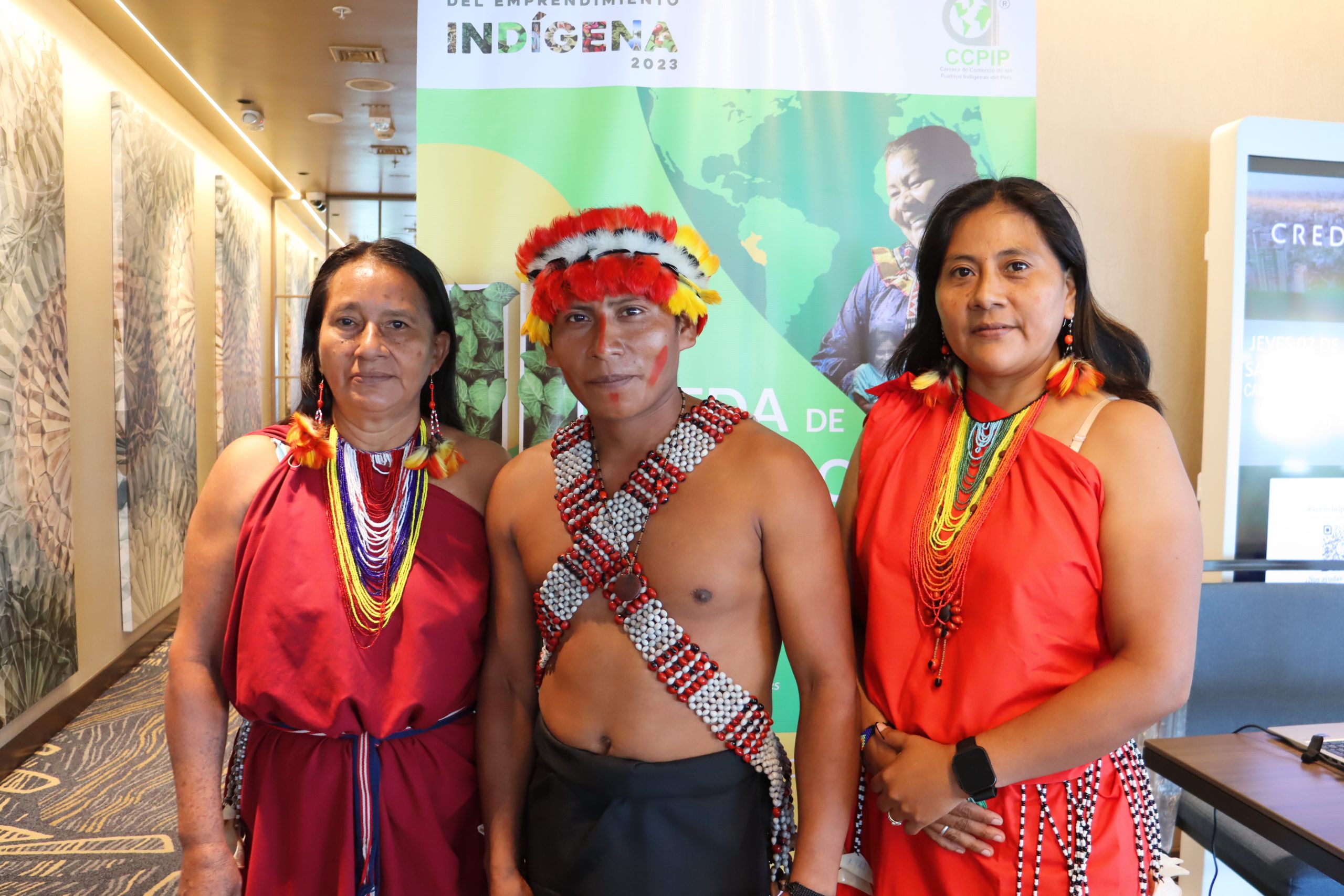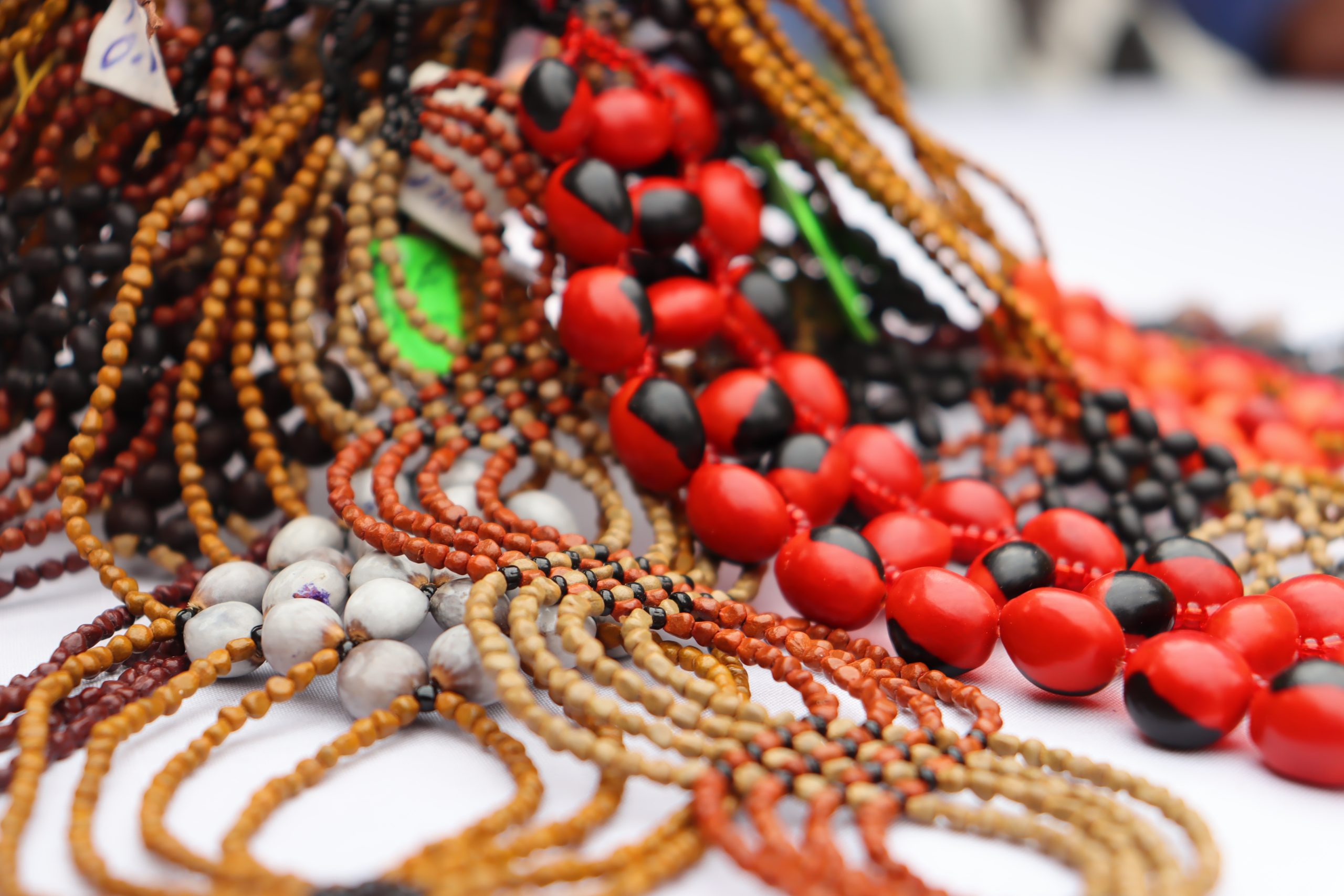Nature-inspired jewellery preserving the Amazon Rainforest
AMARNO, an Association of Women Artisans of the Northeastern Region, comprises 36 Indigenous Awajún women dedicated to revitalising their ancestral knowledge and traditions through bio-jewellery. Their craft not only supports their families but also contributes to the preservation of the Amazon rainforest.
For generations, the Awajún Indigenous peoples in Peru have thrived alongside the Amazon rainforest. They have long utilised the forest’s resources, particularly seeds with diverse meanings, to create traditional ornaments like bracelets and necklaces. Expanding their craft, they now offer a wide range of items such as wallets, keychains, and earrings, each piece carrying its own distinct natural significance.
Cool Earth is actively supporting this endeavour by facilitating AMARNO’s presence at fairs, business meetings, and national platforms to expand the reach of their products to more people.


Amano, artisans association from the awajun program at the Business Roundtable of Indigenous entrepreneurship
To value Awajún tradition is to value the rainforest
Rosa Paukai, president of the artisan association, recalls a time when these sacred trees yielding the important seeds were disappearing.
She explains, “Years ago, we didn’t realise these trees were disappearing. Once we recognised the loss, we, as Indigenous artisans, took responsibility for our forest’s well-being.”
The determined artisans of Urakuza initiated reforestation efforts over fifteen years ago, planting native species like achira, cumpia, and achiote. Despite the trees taking more than a decade to bear fruit, their persistence has paid off, enabling the harvesting of these valuable seeds.
Paukai emphasises the legacy they aim to leave for future generations, saying, ‘We might not be here forever, but at least we’re leaving this for our children. By teaching them to create bracelets and necklaces, we impart the value of our work, maintaining our cultural identity as Awajún people.”


Necklace/jewelry/bracelets/Amarno crafts
Amano, artisans association from the awajun program, at entrepreneurship fair in Lima.
Why should we amplify their impact?
The significance of this project lies in the challenging reality of life in the tropical forest—limited access to essential services like healthcare, education, and clean water, exacerbated by the climate crisis affecting Indigenous communities’ prospects for a dignified life.
Contributing to the creation of sustainable livelihoods within the rainforest is paramount. Rosa, with firsthand experience, emphasises: “The sale of these products isn’t just about income; it represents the story of each woman. Behind every craft is a woman with a family and specific economic challenges. Starting a business isn’t easy for anyone. Yet, thanks to customers supporting us, mothers can aid their children’s education or afford medicine when needed. Without sales, how could they support their families? There’s a collective commitment among all the artisans.”
Want to enjoy more histories from the heart of the rainforest? Meet the artisian association of JETO
